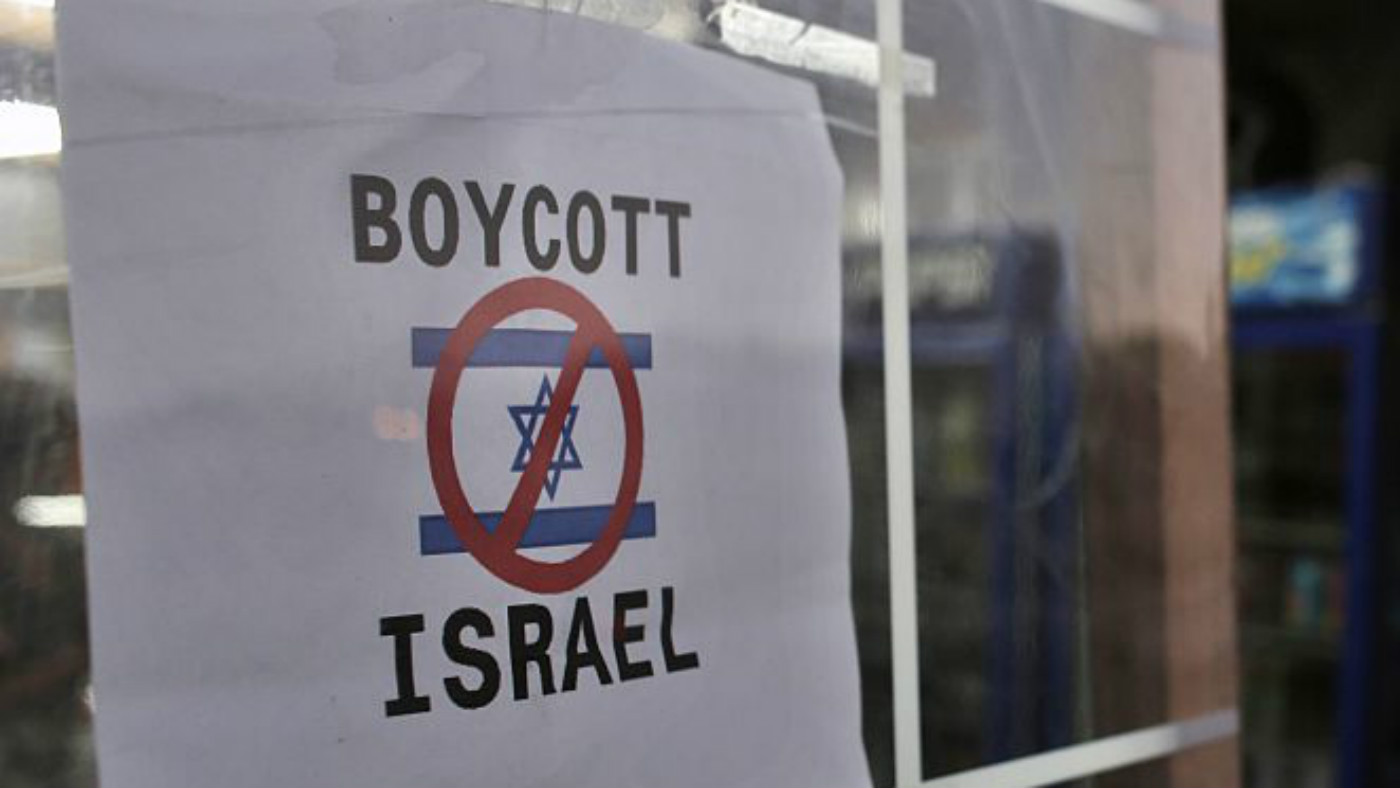BDS: The boycott Israel movement spreading across UK universities
Human rights group faces accusations of anti-Semitism on British campuses

A free daily email with the biggest news stories of the day – and the best features from TheWeek.com
You are now subscribed
Your newsletter sign-up was successful
The Charity Commission has announced it will investigate allegations that student unions are breaking rules by backing the BDS movement, which calls for an international boycott of Israel over the fate of Palestinians.
It follows claims that BDS has fuelled a rise in anti-Semitism on university campuses.
So what is BDS – and is it anti-Semitic?
The Week
Escape your echo chamber. Get the facts behind the news, plus analysis from multiple perspectives.

Sign up for The Week's Free Newsletters
From our morning news briefing to a weekly Good News Newsletter, get the best of The Week delivered directly to your inbox.
From our morning news briefing to a weekly Good News Newsletter, get the best of The Week delivered directly to your inbox.
What do the initials stand for?
BDS is short for Boycott, Divestment and Sanctions. The group calls for a boycott of Israeli businesses and academics, for investors in Israeli firms to divest themselves of their holdings and for sanctions to be imposed on Israel itself.
Where did BDS originate?
The movement was founded in Palestine by NGOs in 2005 and has now gone global. The idea was to copy the global anti-Apartheid movement that applied pressure on South Africa to drop its racist policies. The group says it is "inclusive and categorically opposes as a matter of principle all forms of racism". However, detractors have compared it to Nazi boycotts of Jewish businesses.
A free daily email with the biggest news stories of the day – and the best features from TheWeek.com
Which UK universities back BDS?
BDS was first backed by London's SOAS students' union in 2015 and since then another 15 students' unions have followed suit. According to the BBC, these include Belfast, Birkbeck, Brunel, Essex, Exeter, Goldsmiths, Kings College London, Kingston, Lancashire, Liverpool, Manchester, SOAS, Strathclyde, Sussex, Swansea, University of Arts London and UCL.
Why is it controversial?
Some Jewish student claim the support for BDS has caused a rise in anti-Semitism.
Devora Khafi, a student at Queen Mary University of London, told the BBC's Victoria Derbyshire programme that she felt intimidated on campus and had been targeted for abuse.
She said: "If you look behind the BDS lens, it calls for these things that are not peaceful. They harm Jewish students and pro-Israel students and they don't support a peaceful atmosphere on campus."
Ayesha Abbasi, the co-president of SOAS university, told the BBC: "We have had no formal complaints of anti-Semitism or bullying from any Jewish students since the BDS referendum".
Why is the Charity Commission investigating?
Students' unions have been re-defined as registered charities since 2010, which means they have a legal duty to represent the interests of all their members and are required to limit public comment to issues that affect their members' welfare as students. The BBC says complaints about these issues have been raised with the Charity Commission.
David Holdsworth of the Charity Commission says student unions must not discriminate against students "of a particular faith or race". The commission says it will assess links to the BDS movement "consistently" and if necessary "take regulatory action".
Are any Jewish students in favour of BDS?
Yes. Sai Englert, a Jewish PhD student at SOAS and a member of the university's Palestine Society, told the BBC: "The idea that somehow supporting BDS, supporting boycott etc is a blanket boycott on individuals I think is very dangerous. It's not.
"It's about saying we don't want institutional links, economic links, political links with institutions, governments, companies that are complicit in attacks on rights."
-
 The 8 best TV shows of the 1960s
The 8 best TV shows of the 1960sThe standout shows of this decade take viewers from outer space to the Wild West
-
 Microdramas are booming
Microdramas are boomingUnder the radar Scroll to watch a whole movie
-
 The Olympic timekeepers keeping the Games on track
The Olympic timekeepers keeping the Games on trackUnder the Radar Swiss watchmaking giant Omega has been at the finish line of every Olympic Games for nearly 100 years
-
 Epstein files topple law CEO, roil UK government
Epstein files topple law CEO, roil UK governmentSpeed Read Peter Mandelson, Britain’s former ambassador to the US, is caught up in the scandal
-
 Iran and US prepare to meet after skirmishes
Iran and US prepare to meet after skirmishesSpeed Read The incident comes amid heightened tensions in the Middle East
-
 Israel retrieves final hostage’s body from Gaza
Israel retrieves final hostage’s body from GazaSpeed Read The 24-year-old police officer was killed during the initial Hamas attack
-
 China’s Xi targets top general in growing purge
China’s Xi targets top general in growing purgeSpeed Read Zhang Youxia is being investigated over ‘grave violations’ of the law
-
 Panama and Canada are negotiating over a crucial copper mine
Panama and Canada are negotiating over a crucial copper mineIn the Spotlight Panama is set to make a final decision on the mine this summer
-
 Why Greenland’s natural resources are nearly impossible to mine
Why Greenland’s natural resources are nearly impossible to mineThe Explainer The country’s natural landscape makes the task extremely difficult
-
 Iran cuts internet as protests escalate
Iran cuts internet as protests escalateSpeed Reada Government buildings across the country have been set on fire
-
 US nabs ‘shadow’ tanker claimed by Russia
US nabs ‘shadow’ tanker claimed by RussiaSpeed Read The ship was one of two vessels seized by the US military